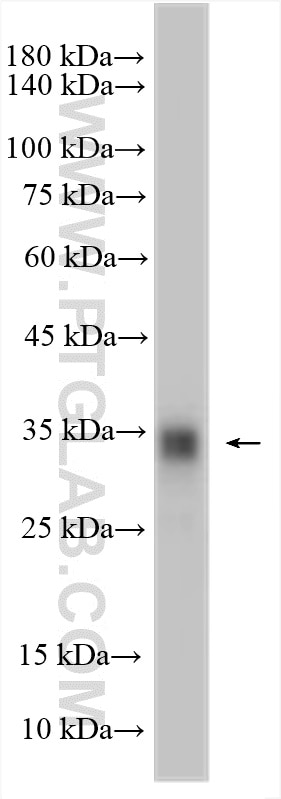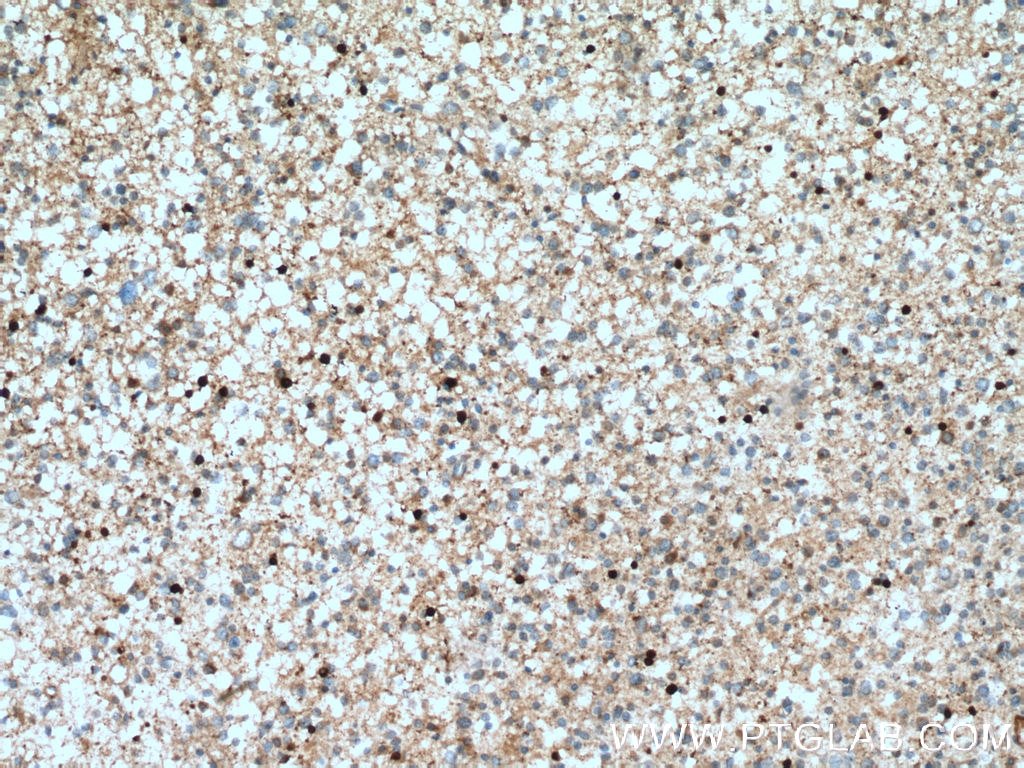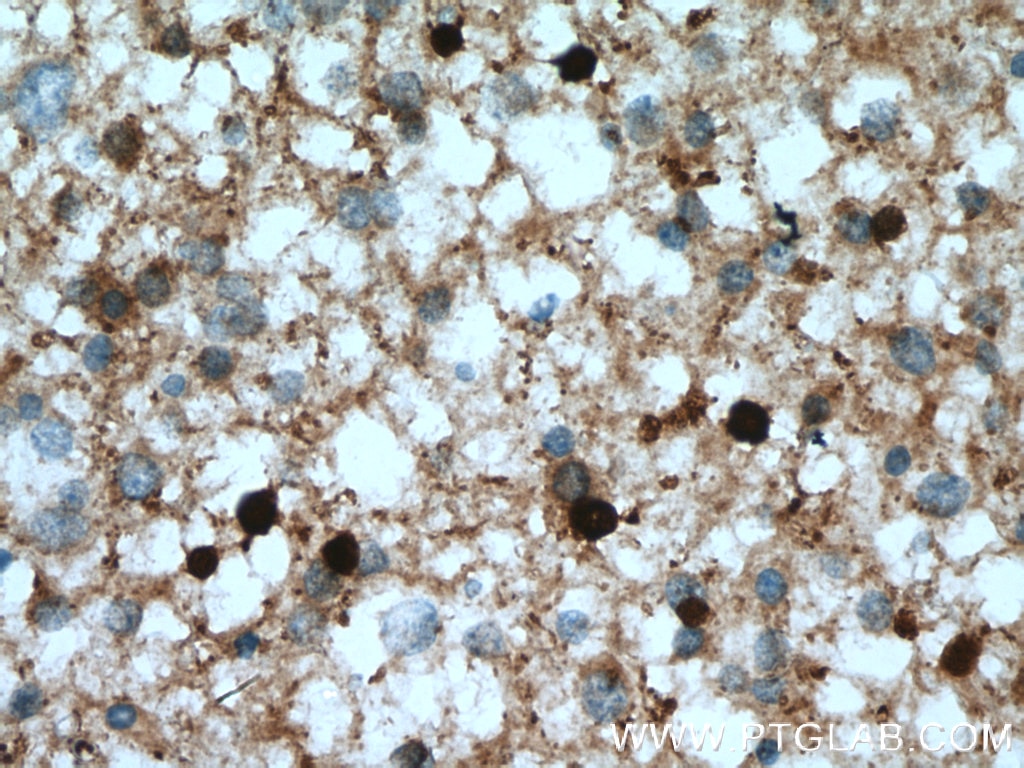- Phare
- Validé par KD/KO
Anticorps Polyclonal de lapin anti-ASPA
ASPA Polyclonal Antibody for WB, IHC, ELISA
Hôte / Isotype
Lapin / IgG
Réactivité testée
Humain, rat, souris
Applications
WB, IHC, IF, ELISA
Conjugaison
Non conjugué
N° de cat : 13244-1-AP
Synonymes
Galerie de données de validation
Applications testées
| Résultats positifs en WB | tissu cérébral de souris, |
| Résultats positifs en IHC | tissu de gliome humain, il est suggéré de démasquer l'antigène avec un tampon de TE buffer pH 9.0; (*) À défaut, 'le démasquage de l'antigène peut être 'effectué avec un tampon citrate pH 6,0. |
Dilution recommandée
| Application | Dilution |
|---|---|
| Western Blot (WB) | WB : 1:1000-1:6000 |
| Immunohistochimie (IHC) | IHC : 1:50-1:500 |
| It is recommended that this reagent should be titrated in each testing system to obtain optimal results. | |
| Sample-dependent, check data in validation data gallery | |
Applications publiées
| KD/KO | See 1 publications below |
| WB | See 6 publications below |
| IHC | See 1 publications below |
| IF | See 3 publications below |
Informations sur le produit
13244-1-AP cible ASPA dans les applications de WB, IHC, IF, ELISA et montre une réactivité avec des échantillons Humain, rat, souris
| Réactivité | Humain, rat, souris |
| Réactivité citée | rat, Humain, souris |
| Hôte / Isotype | Lapin / IgG |
| Clonalité | Polyclonal |
| Type | Anticorps |
| Immunogène | ASPA Protéine recombinante Ag4029 |
| Nom complet | aspartoacylase (Canavan disease) |
| Masse moléculaire calculée | 313 aa, 36 kDa |
| Poids moléculaire observé | 36 kDa |
| Numéro d’acquisition GenBank | BC029128 |
| Symbole du gène | ASPA |
| Identification du gène (NCBI) | 443 |
| Conjugaison | Non conjugué |
| Forme | Liquide |
| Méthode de purification | Purification par affinité contre l'antigène |
| Tampon de stockage | PBS with 0.02% sodium azide and 50% glycerol |
| Conditions de stockage | Stocker à -20°C. Stable pendant un an après l'expédition. L'aliquotage n'est pas nécessaire pour le stockage à -20oC Les 20ul contiennent 0,1% de BSA. |
Informations générales
ASPA(Aspartoacylase) also called aminoacylase-2, is an enzyme that hydrolyzes N-acetyl-L-aspartic acid (NAA) to aspartate and acetate.Human ASPA encodes a deduced 313-amino acid protein with a molecular mass of 36 KDa. It shares 92% sequence identity with the bovine protein and contains 1 potential N-glycosylation site and 5 phosphorylation sites.Defects in ASPA are the cause of Canavan disease (CAND).This protein can exsit as a homodimer(18293939).
Protocole
| Product Specific Protocols | |
|---|---|
| WB protocol for ASPA antibody 13244-1-AP | Download protocol |
| IHC protocol for ASPA antibody 13244-1-AP | Download protocol |
| Standard Protocols | |
|---|---|
| Click here to view our Standard Protocols |
Publications
| Species | Application | Title |
|---|---|---|
Mil Med Res Aspartoacylase suppresses prostate cancer progression by blocking LYN activation | ||
Elife Conservation and divergence of myelin proteome and oligodendrocyte transcriptome profiles between humans and mice. | ||
Glia Developmental maturation and regional heterogeneity but no sexual dimorphism of the murine CNS myelin proteome | ||
J Neurosci Suppressing N-Acetyl-l-Aspartate Synthesis Prevents Loss of Neurons in a Murine Model of Canavan Leukodystrophy.
| ||
Front Pharmacol Increasing Aspartoacylase in the Central Amygdala: The Common Mechanism of Gastroprotective Effects of Monoamine-Based Antidepressants Against Stress. | ||
J Med Virol HPV-CCDC106 integration promotes cervical cancer progression by facilitating the high expression of CCDC106 after HPV E6 splicing. |




